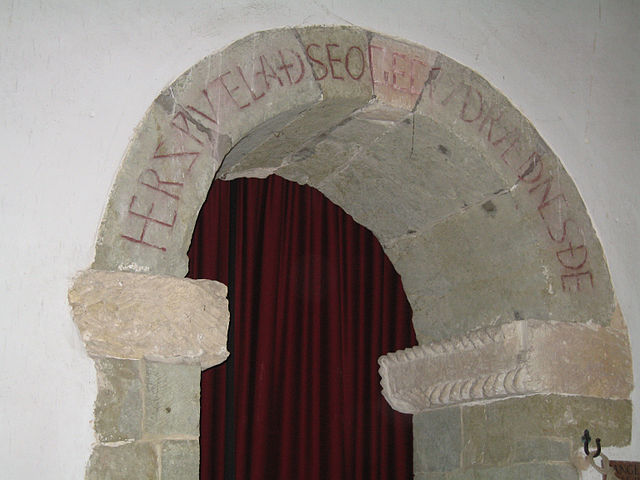A fish hook or fishhook, formerly also called angle, is a hook used to catch fish either by piercing and embedding onto the inside of the fish mouth (angling) or, more rarely, by impaling and snagging the external fish body. Fish hooks are normally attached to a line, which tethers the target fish to the angler for retrieval, and are typically dressed with some form of bait or lure that entices the fish to swallow the hook out of its own natural instinct to forage or hunt.
A variety of fish hooks
Primeval stone and bronze gorges
Stone Age fish hook made from bone
Native American shell fish hook from California. Auckland Museum
Old English, or Anglo-Saxon, is the earliest recorded form of the English language, spoken in England and southern and eastern Scotland in the early Middle Ages. It developed from the languages brought to Great Britain by Anglo-Saxon settlers in the mid-5th century, and the first Old English literary works date from the mid-7th century. After the Norman Conquest of 1066, English was replaced for several centuries by Anglo-Norman as the language of the upper classes. This is regarded as marking the end of the Old English era, since during the subsequent period the English language was heavily influenced by Anglo-Norman, developing into what is now known as Middle English in England and Early Scots in Scotland.
Alfred the Great statue in Winchester, Hampshire. The 9th-century English King proposed that primary education be taught in English, with those wishing to advance to holy orders to continue their studies in Latin.
Her sƿutelað seo gecƿydrædnes ðe ('Here the Word is revealed to thee'). Old English inscription over the arch of the south porticus in the 10th century St Mary's parish church, Breamore, Hampshire
The first page of the Beowulf manuscript with its opening Hƿæt ƿē Gārde/na ingēar dagum þēod cyninga / þrym ge frunon... "Listen! We of the Spear-Danes from days of yore have heard of the glory of the folk-kings..."







